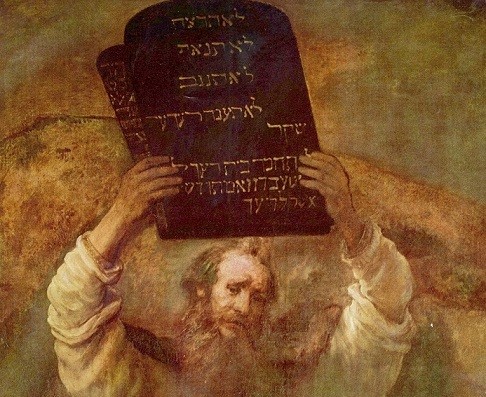Christians and the Sabbath
There is a growing number of Christian groups which teach that Christians must observe the seventh-day Sabbath. The arguments presented by these Sabbatarians seem quite compelling. But are their conclusions correct?
Let us consider Exodus 31:12-17:
And Yahweh said to Moses, “You are to speak to the people of Israel and say, ‘Above all you shall keep My Sabbaths, for this is a sign between Me and you throughout your generations, that you may know that I, Yahweh, sanctify you. You shall keep the Sabbath, because it is holy for you. Everyone who profanes it shall be put to death. Whoever does any work on it, shall be cut off from among his people. Six days shall work be done, but the seventh day is a Sabbath of solemn rest, holy to Yahweh. Whoever does any work on the Sabbath day shall be put to death. Therefore the people of Israel shall keep the Sabbath, observing the Sabbath throughout their generations, as a covenant forever. It is a sign forever between Me and the people of Israel that in six days Yahweh made heaven and earth, and on the seventh day he rested and was refreshed.’”
Note in this passage that God made the Sabbath covenant with the people of Israel, the people He liberated from Egyptian slavery and their descendants (generations). God did not make this covenant with mankind in general.
Sabbatarians will not agree with this last statement. They point to Genesis 2:2, 3 which reads:
And on the seventh day God finished His work that He had done, and He rested on the seventh day from all His work that He had done. So God blessed the seventh day and made it holy, because on it God rested from all His work that He had done in creation.
From this they assert that God has mandated all of humankind to observe the Sabbath since the time of Adam. However, this is an assumption in that no explicit statement was made to this effect, and no example is recorded in the Bible of anyone’s observance of Sabbath prior to Israel’s exodus from Egypt. The Bible explicitly says that the nation of Israel was commanded by God to observe Sabbath. How could the Sabbath serve as a sign between God and Israel if its observance is mandated for all humankind?1
Next let us examine a passage from the Christian Testament. Luke 21:17-26 records certain events of Paul’s return to Jerusalem. Here we quote pertinent portions of the account:
On the following day Paul went in with us to James, and all the elders were present… And they said to [Paul], “You see, brother, how many thousands there are among the Jews of those who have believed. They are all zealous for the Law, and they have been told about you that you teach all the Jews who are among the gentiles to forsake Moses, telling them not to circumcise their children or walk according to our customs. What is to be done? They will certainly hear that you have come. Do therefore what we tell you… [certain instructions are given for Paul to follow]… Thus all will know that there is nothing in what they have been told about you, but that you yourself also live in observance of the Law. But as for the gentiles who have believed, we have sent a letter with our judgment that they should abstain from what has been sacrificed to idols, and from blood, and from what has been strangled, and from sexual immorality.”
Note that many thousands of the Jews had become believers in Jesus as the Messiah and were zealous for the Law. These believers were concerned because they had heard that Paul was teaching Jews in the dispersion to quit following Moses. They were NOT concerned with what Paul was teaching gentile believers. The events recounted here occurred in the early 60’s AD.
Verse 25 quoted above refers back to events that had occurred about fifteen to twenty years earlier which are recorded in Acts 15. At that time some Jewish believers in Jesus began teaching gentile believers “Unless you are circumcised according to the custom of Moses, you cannot be saved.” (Acts 15:1) This caused quite a stir among the gentile believers. Finally, a council meeting of the apostles and elders in Jerusalem was called to resolve this issue. There certain Jewish believers contended, “It is necessary to circumcise [the gentile believers] and to order them to keep the Law of Moses.” (15:5) After much discussion it was finally resolved what course to take. A letter was sent to the gentile believers, a portion of which read, “For it seemed good to the holy spirit and to us to lay on you no greater burden than these requirements: that you abstain from what has been sacrificed to idols, and from blood, and from what has been strangled, and from sexual immorality. If you keep yourselves from these, you will do well. Farewell.” (15:28, 29).
Note first and foremost that Sabbath observance was not included in these requirements! It might be objected that neither was stealing or murder. True, but the facets of the Mosaic Law which were delineated are areas where pagan morality was significantly different from the Law. Pagans understood that stealing, murder, and other moral issues were wrong, and their standards were not so different that special mention needed to be made. Since pagans did not observe seventh-day Sabbath, its specific mention would be expected to enjoin its observance among gentile believers.
As noted earlier Sabbatarians assert that Sabbath observance was mandated before the Law of Moses and binding upon all humankind. We disagree with this; but even if it were true, it would have no bearing on the issue. All the requirements selected by the council for gentile observance were pre-Mosaic. Even circumcision which was a primary point of discussion in the council meeting, but NOT included in the conciliar letter, was pre-Mosaic. These facts reinforce the conclusion that Sabbath observance would have had to be specifically mentioned to be included.
One other passage in the Christian Testament needs examination. Hebrews 4:9, 10 reads,
So then, there remains a Sabbath rest2 for the people of God, for whoever has entered God’s rest has also rested from his works as God did from His.
The context for understanding this passage is quite large. Please read Hebrews 3:7-4:13.
The passage speaks of a rebellion by those liberated from Egypt. Verses 18 and 19 of chapter 3 comment:
And to whom did He swear that they would not enter His rest, but to those who were disobedient? So we see that they were unable to enter because of unbelief.”
What situation is being referred to here? Numbers chapters 13 and 14 report that just before Israel was to enter the Promised Land of Canaan men were sent in to spy out the land. The report of ten of the spies struck fear in the hearts of the people so that they wanted to turn back to Egypt! Consequently, their fear and unbelief in God’s protection led to His curse,
“None of the men who have seen My glory and My signs that I did in Egypt and in the wilderness, and yet have put Me to the test these ten times and have not obeyed My voice, shall see the land that I swore to give to their fathers. And none of those who despised Me shall see it.” (Numbers 14:22, 23)
Israel failed to enter the Promised Land. They had been observing seventh-day Sabbath; but they failed to rest their faith in God when danger loomed on the horizon, despite witnessing the many miraculous events performed on their behalf!
The writer of Hebrews continues,
For He has somewhere spoken of the seventh day in this way: “And God rested on the seventh day from all His works.” And again in this passage He said, “They shall not enter My rest.” Since therefore it remains for some to enter it, and those who formerly received the good news failed to enter because of disobedience [the incident explained above], again He appoints a certain day, “Today,” saying through David so long afterward,… “Today, if you hear His voice, do not harden your hearts.” For if Joshua had given them rest, God would not have spoken of another day later on. So then, there remains a Sabbath rest for the people of God, for whoever has entered God’s rest has also rested from his works as God did from His.
Here we find mentioned the seventh day, but we also find the mention of another day. What is this “another day”? Today! Today is the day we enter God’s rest through belief and obedience. Today is the day we cease from our selfish works to do the works of God. Today, each and every day, is the Christian’s Sabbath!
For the Christian who finds Sabbath observance spiritually beneficial it is not a sin to do so. And for the Christian who is convinced it is mandated, it would be a sin not to. But for all Christians Jesus said, “A new commandment I give to you, that you love one another: just as I have loved you, you also are to love one another. By this all people will know that you are my disciples, if you have love for one another.” Regardless of one’s position on the seventh-day issue, it is this Christ-like love which will motivate us to live the Sabbath life everyday, resting our faith in God. – John 13:34, 35; consider Romans 13:8-10, 14:4-6.
NOTES:
1 Sabbatarians also use Jesus’ statement recorded at Mark 2:27, “The Sabbath was made for man, not man for the Sabbath” to prove that Sabbath observance is mandated for all humankind. Jesus’ statement should not be understood in a way that contradicts Biblical revelation. Israel was liberated from hundreds of years of slavery. Sabbath observance would act as a reminder of their abject slavery in the past and a preventative to their merciless exploitation of others in the future. Contrary to the spirit of the Sabbath the scribes and Pharisees were enslaving the Jews again with their added rules and regulations regarding the Sabbath. A paraphrase of what Jesus meant might read, The Sabbath was intended as a humane provision, not as a way to enslave men.
2 The Greek word rendered here as Sabbath rest occurs no where else in the Bible, not even in reference to the seventh-day Sabbath.



